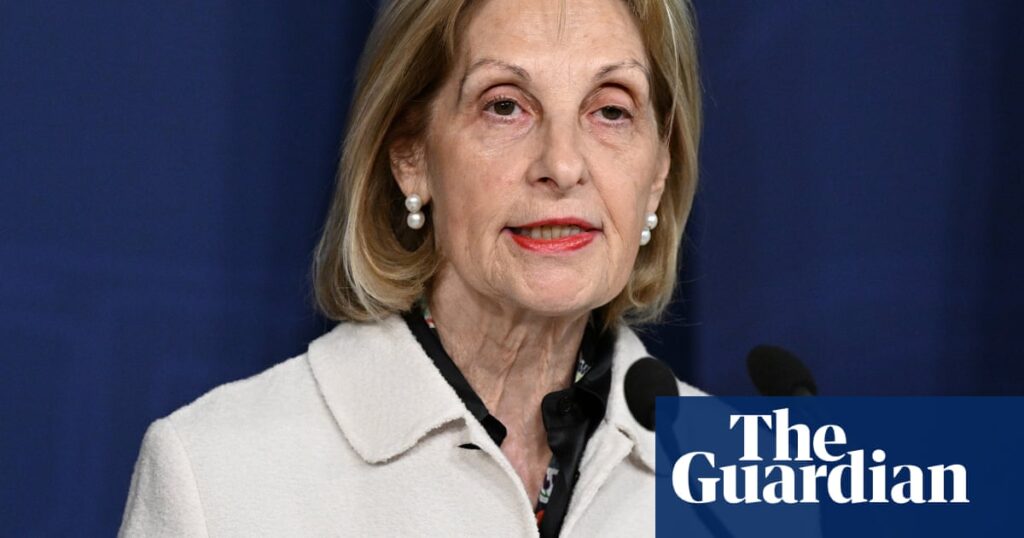
The Australian government’s recent proposal to combat antisemitism has sparked a heated debate, with critics likening it to “Trumpian” tactics due to concerns that it could be used to suppress dissent. The plan, unveiled by antisemitism envoy Jillian Segal, recommends cutting funding to universities, charities, and cultural bodies that either promote or fail to act against antisemitism.
Segal’s 20-page report, released on Thursday, suggests measures such as a “university report card” and the withholding of government funds from institutions that “facilitate, enable or fail to act against antisemitism.” Although Segal clarified that these actions would be a “last resort,” the proposal has raised alarms among academics and various peak bodies about potential censorship.
Support and Criticism from Key Stakeholders
While peak Jewish groups, including the Executive Council of Australian Jewry, have “strongly endorsed” the plan as “urgently needed,” others are wary. The federal government has yet to fully commit, with Prime Minister Anthony Albanese refraining from setting a deadline for potential funding withdrawals.
Max Kaiser, executive officer of the Jewish Council of Australia, warned that the plan could echo authoritarian strategies, reminiscent of those employed by figures like Donald Trump. The Trump administration previously cut billions in funding to universities accused of tolerating antisemitism, such as Columbia University during pro-Palestinian protests.
“Tying public funding to vague and politically loaded criteria and definitions is not only undemocratic, it’s deeply dangerous,” Kaiser stated.
Universities Australia and the Group of Eight, representing major research universities, have expressed a commitment to addressing antisemitism but emphasized the importance of maintaining academic freedom and expression.
Concerns Over Academic Freedom and Censorship
The plan has drawn criticism from various academic circles. Ashlyn Horton, president of the National Union of Students, described it as “Trumpian” and a “serious overreach” that threatens the autonomy of educational institutions.
Dr. Jordana Silverstein, a cultural historian at the University of Melbourne, called the plan a “clear attack” on university education and research. Daniel Angus, a professor of digital communication, cautioned that the strategy could set a “dangerous precedent” by conflating legitimate political critique with hate speech.
“Antisemitism must be taken seriously, but the strategy risks collapsing legitimate political critique, especially that of the state of Israel, into hate speech,” Angus remarked.
The plan also targets media organizations, proposing to monitor them to prevent “false or distorted narratives.” The ABC, Australia’s national broadcaster, responded by highlighting its “strong and transparent system of self-regulation.”
Implications for Charities and Cultural Institutions
Beyond universities, the plan suggests revoking the deductible gift recipient status from charities that “promote speakers or engage in conduct that promotes antisemitism.” David Crosbie, CEO of the Community Council for Australia, questioned the necessity of such legislative changes, arguing that existing accountability measures are sufficient.
“Existing accountability and reporting requirements of charities are strong enough to investigate and remove the charitable status of any charity involved in promoting unlawful and violent behavior,” Crosbie stated.
Prof Jo Caust from the University of Melbourne warned that adopting a US-style approach to censorship could be disastrous for Australia. She emphasized the importance of clear guidelines to prevent self-censorship among cultural institutions.
Looking Ahead: Balancing Security and Freedom
As the debate continues, stakeholders are urging careful consideration of the plan’s potential impacts. Creative Australia has committed to working with government stakeholders, ensuring compliance with anti-discrimination laws while fostering an environment of open dialogue and creativity.
The controversy surrounding the antisemitism plan highlights the delicate balance between combating hate speech and preserving freedom of expression. As discussions unfold, the challenge will be to implement measures that effectively address antisemitism without stifling academic and cultural discourse.






